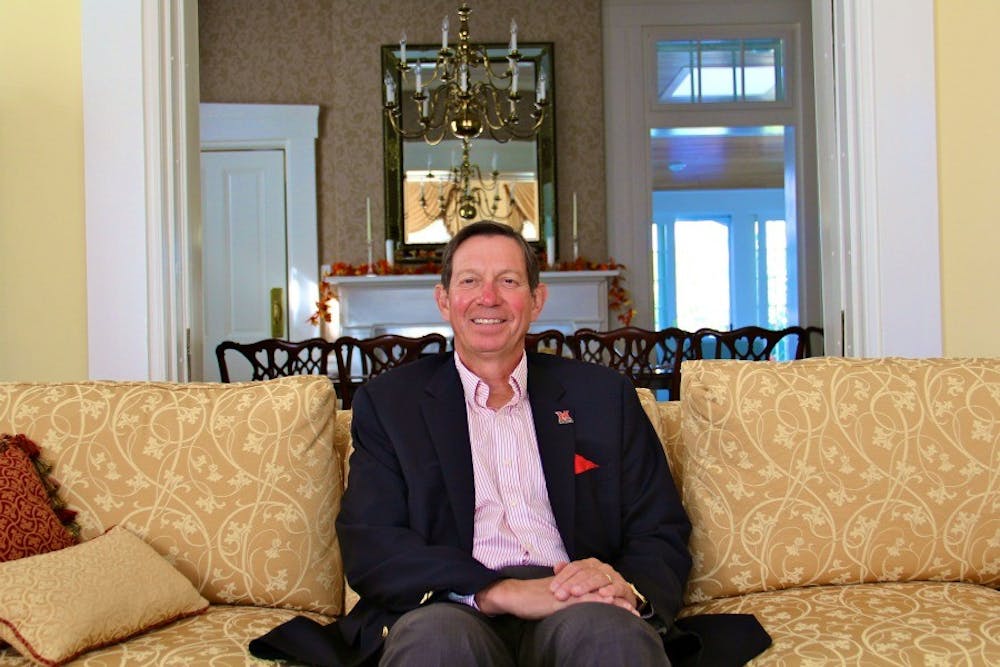The following piece, written by the editorial editors, reflects the majority opinion of the editorial board.
It takes a string of events, an unfortunate sequence of actions for a sexual assault to happen. But looking back, it often seems to only take an instant.
Perhaps it starts with a few too many swigs of alcohol in a crowded room. Maybe an unexpecting girl and a confident boy whisper to one another and then walk up the stairs to a private place. It's a routine with moving parts and different faces, but the same basic factors and evils hold.
Over the years, a cycle has developed at colleges across the country; administrators can expect to tally a certain number of sexual assaults yearly as mandated by the federal statute known as the Clery Act. And yet, the methods for reporting, preventing or rectifying sexual misconduct have not been perfected.
One in five women will be a victim, and very few will ever find justice.
All that seems to surface out of this, year after year, are questions. And unknowns. And complex policies. And indecision. And dead-ends.
There is no sense of moving forward.
If students, parents, administrators and faculty know the routine, then why is it so hard to break?
And why are we still struggling with a messy, complicated university disciplinary system?
At Miami, the number of on-campus sexual assaults reported yearly rose from seven in 2011 to 20 in 2013. But there was no corresponding rise in the number of individuals disciplined for these cases. Out of the 45 reports over three years, Miami punished only 10.
Those numbers are shocking, and what's worse is that they represent only a small fraction of the truth. Under the Clery Act, universities are only required to count reports that happened on-campus and in university-affiliated buildings, such as fraternity houses. And, of course, if colleges don't have to report the full numbers, they're not going to.
So we get a downplayed version of how many sexual assaults are really reported. And we get a less-than-true image of how big of a problem sexual assault is.
There's something wrong about that.
Without the accurate metrics, we can't really fix this. We talk very loosely about rape culture in college and at Miami and we often get lost in the mess of situational scenarios and what-ifs. If we had a better idea of the real numbers, we'd be able to take real steps forward. A survey set to sent out this month to Miami students might help with transparency, but that's one step.
President Hodge's response to these numbers hint at the messy back-and-forth this university, and universities around the country, pass off as making progress.
"This is an area that, boy, I wish we all had a crystal ball and could figure this out," Hodge said.
Oh, is that we should rely on? A crystal ball?
This is not the kind of issue to downplay or leave to ambiguous half-solutions, this is the kind of thing the university should go above and beyond to fix.
But there are inherent flaws in this system that's setting it up to fail, with victims set up to never receive justice. Anyone who is attached to the university has some sort of bias, because they don't want to make Miami look bad.
We've given universities enough chances (and too many years without progress) to try to handle this. Proceedings are led by faculty members who receive minimal training and students usually have little clarity in what steps they should take. The accused don't receive the discipline they deserve. This is all getting us nowhere.
So, the solution might be to take this out of the university's hands altogether.
About half of college presidents "agree or strongly agree that local law enforcement should be responsible for handling all sexual assault cases on campuses." That's according to the Inside Higher Ed Survey of College and University Presidents conducted this year by Gallup.
We agree. A university isn't the best system to handle these cases; they're often not equipped for it. We need to stop asking universities to be criminal courts. We need to stop relying on universities to not look out for their image. We need to look outside of these routines and flawed systems for answers.

